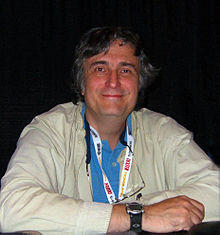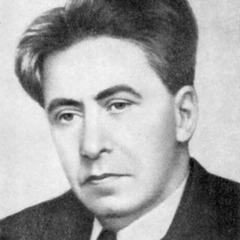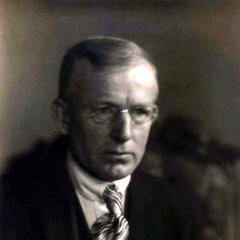William Hazlitt Quotes - Page 11

William Hazlitt, William Ernest Henley (1904). “The Collected Works of William Hazlitt: Fugitive writings”
William Hazlitt (2015). “Delphi Collected Works of William Hazlitt (Illustrated)”, p.1481, Delphi Classics
Learning is, in too many cases, but a foil to common sense; a substitute for true knowledge.
William Hazlitt (2015). “Delphi Collected Works of William Hazlitt (Illustrated)”, p.1091, Delphi Classics
William Hazlitt (1870). “The Plain Speaker: Opinions on Books, Men, and Things”, p.351
William Hazlitt (1848). “The Miscellaneous Works”
Our contempt for others proves nothing but the illiberality and narrowness of our own views.
William Hazlitt (1837). “Characteristics: in the manner of Rochefoucault's Maxims [by W. Hazlitt].”, p.119
The perfect joys of heaven do not satisfy the cravings of nature.
William Hazlitt (2015). “Delphi Collected Works of William Hazlitt (Illustrated)”, p.314, Delphi Classics
William Hazlitt (2015). “Delphi Collected Works of William Hazlitt (Illustrated)”, p.1808, Delphi Classics
William Hazlitt, Edward George Earle Lytten Butwer-Lytton Lyton (1st baron), Sir Thomas Noon Talfourd (1836). “Essays: On self-love. On the conduct of life: or, Advice to a school-boy. On the fine arts. The fight. On want of money. On the feeling of immortality in youth. The main-chance. The opera. Of persons one would wish to have seen. My first acquaintance with poets. The shyness of scholors. The Vatican. On the spirit of monarchy”, p.293
1819 Political Essays,'On the Clerical Character'.
The rule for traveling abroad is to take our common sense with us, and leave our prejudices behind.
William Hazlitt (1826). “Notes of a journey through France and Italy ...”, p.1
Fashion is gentility running away from vulgarity and afraid of being overtaken
William Hazlitt (1856). “Criticisms on Art”, p.92
William Hazlitt (1837). “Characteristics: in the manner of Rochefoucault's Maxims [by W. Hazlitt].”
William Hazlitt (1859). “Lectures on the English comic writers, and Lectures on the English poets”
William Hazlitt (1859). “Table talk”
He will never have true friends who is afraid of making enemies.
William Hazlitt (1837). “Characteristics: in the manner of Rochefoucault's Maxims [by W. Hazlitt].”, p.142
William Hazlitt (1837). “Characteristics: in the manner of Rochefoucault's Maxims [by W. Hazlitt].”, p.134
William Hazlitt (2015). “Delphi Collected Works of William Hazlitt (Illustrated)”, p.1097, Delphi Classics






